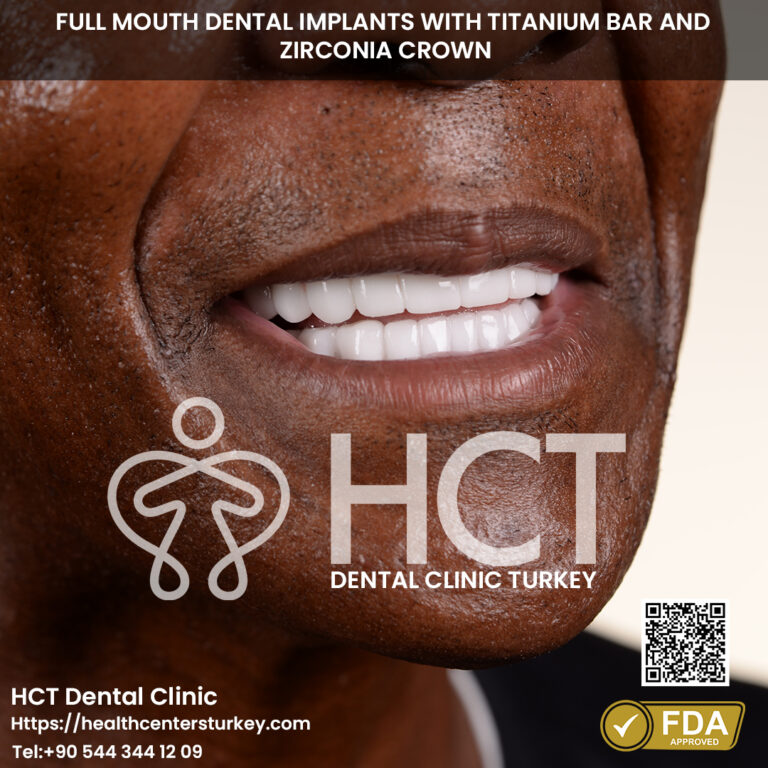A Comprehensive Look at Dental Procedures in Turkey
A Comprehensive Look at Dental Procedures in Turkey
Blog Article
Trustworthy Braces and Aligners provided in Antalya
Dental implants have turn into a popular resolution for those trying to replace missing teeth. Understanding how these implants can affect adjacent teeth is important for anybody considering this process, in addition to for dentists and specialists involved in dental care.

One important facet is that dental implants are designed to be anchored into the jawbone, which means they're independent of adjacent teeth. Unlike dental bridges, which frequently require the alteration of neighboring teeth, implants can fill the hole without compromising the health or structure of these surrounding teeth.
This independence helps maintain the integrity of adjacent teeth. When a tooth is misplaced, there can be a natural tendency for neighboring teeth to tilt or shift into the empty house. Such movement can lead to misalignment, which may have an result on chew and overall oral health. By inserting an implant, you successfully prevent this potential shift, selling better alignment in the long run.
Achieve the Best Dental Treatments and Services in Affordable Rates in Turkey
Additionally, dental implants assist maintain bone density in the jaw. A natural tooth root supplies stimulation to the surrounding bone, preserving it healthy and robust. When a tooth is missing, the bone can start to deteriorate due to lack of stimulation. With a dental implant mimicking a natural root, bone loss can be minimized, which indirectly advantages adjacent teeth by preserving the overall structure of the dental arch.
While dental implants are advantageous, improper placement can influence neighboring teeth. If an implant is positioned too close to another tooth, it could exert undue strain on that tooth, leading to discomfort or potential damage. Proper planning and imaging methods are essential for avoiding such issues.
Take Advantage of Luxury Dental Care in Turkey with Competitive Prices
Moreover, maintaining good oral hygiene is essential after receiving an implant. If not properly cleaned, surrounding teeth might become vulnerable to dental points such as decay or gum disease. This underscores the significance of diligent oral care following the process to ensure each implants and adjacent teeth stay healthy.
Regular dental check-ups are additionally vital for monitoring the health of surrounding teeth. Dentists can establish any shifts or potential problems early, allowing for timely interventions. This proactive method ensures that both the implant and adjacent teeth can coexist without issues.
Health Tourism: Take Advantage of Affordable Care in Turkey
Another consideration is the impact of implants on chew drive. When a single tooth is missing, the load of chewing may shift to adjacent teeth, probably resulting in wear or strain. Implants restore proper chunk dynamics by redistributing forces within the mouth, which can shield surrounding teeth from undue stress.
Some sufferers may raise considerations in regards to the appearance of dental implants. Well-placed implants can blend seamlessly with existing teeth, improving general aesthetics. In distinction, failing to replace a missing tooth can lead to aesthetic issues, together with collapsing of facial structure and adjustments in smile dynamics.
It's additionally worth discussing the psychological aspects of dental health. Experiencing tooth loss can adversely affect one’s shallowness and willingness to have interaction socially. By restoring your smile with implants, you'll be able to positively affect not solely your oral health but additionally your emotional well-being.
Long-term success of dental implants usually hinges on various factors, including the patient's health, maintenance habits, and the quality of the initial procedure. If adjacent teeth are healthy and properly cared for, the chances are they may proceed to thrive alongside the implants.
Transform Your Smile with Cosmetic Dentistry in Turkey
In conclusion, dental implants play a vital role in not just restoring particular person smiles, but in preserving the health and structure of adjacent teeth. By preventing shifting, maintaining bone density, and redistributing bite forces, implants can be sure that surrounding teeth remain in optimal condition. Proper placement, hygiene, and regular dental visits can further enhance the benefits of dental implants, resulting in a healthier, extra assured smile for years to come.
- Dental implants can help maintain the alignment of adjacent teeth by offering a secure anchor, stopping adjacent teeth from shifting into the hole left by a missing tooth.
- The presence of an implant could stimulate bone development within the jaw, helping to protect the general structure and integrity of the adjacent teeth.
- Unlike traditional bridges, implants don't require alteration of surrounding teeth, thus preserving their power and anatomy.
- Implants can improve the distribution of chew forces evenly throughout the dental arch, decreasing the stress on neighboring teeth throughout chewing.
- A well-integrated dental implant can decrease the risk of bone loss within the area surrounding adjacent teeth, contributing to their long-term health and stability.
- The aesthetics of adjacent teeth may be improved as a result of help offered by implants, which might lead to better overall cosmetic outcomes.
- With proper placement, dental implants can prevent gum recession round adjacent teeth by maintaining sufficient dental structure.
- Implants may help mitigate the risks of periodontal disease in nearby teeth by selling healthy gum tissue and providing a washable floor.
- Long-term success of dental implants can result in improved oral hygiene routines, which in turn benefits the health of surrounding teeth.
- The improved practical ability of an implant can encourage patients to chew extra successfully, thus growing saliva production and aiding in the safety of adjacent dental tissues.undefinedHow do dental implants have an effect on adjacent teeth?
What are dental implants and how do they work together with adjacent teeth?undefinedDental implants are artificial tooth roots which are surgically placed into the jawbone. They provide a steady foundation for replacement teeth whereas making certain minimal disruption to adjacent teeth, preserving their integrity and alignment. Optimize Your Teeth Care with Experienced Professionals in Turkey.
Locate Your Best Dental Clinic in Turkey for Aesthetic Procedures
Can dental implants trigger problems for close by natural teeth?undefinedGenerally, dental implants do not hurt adjacent natural teeth. However, if the implant is not placed correctly or if there’s insufficient oral hygiene, it could result in complications such as adjacent tooth decay or gum disease.

Will getting a dental implant change the greatest way my adjacent teeth feel?undefinedMost sufferers Your Domain Name report no change in the sensation of adjacent teeth after implant placement. However, it might take some time to adjust to the presence of the implant, similar to how one may adapt to other dental restorations.
Can dental implants help protect the health of adjacent teeth?undefinedYes, dental implants may help preserve the health of adjacent teeth by stopping bone loss that may happen after tooth loss. This preservation helps the alignment of close by teeth, decreasing the risk of shifting or misalignment.
Investigate Treatment Alternatives for Dental Implants
Do I need to change adjacent teeth when getting an implant?undefinedTypically, adjacent teeth don't want alteration when putting an implant. This is among the advantages of dental implants over conventional bridges, which frequently require reshaping adjacent teeth for support.
How does the healing strategy of an implant affect nearby teeth?undefinedThe healing course of entails osseointegration, the place the implant fuses with the jawbone. During this time, adjacent teeth remain unaffected and retain their function, although it’s important to follow post-operative care suggestions. Cost-effective Dental Care Packages in Turkey for Implants and Cosmetic Dentistry.
Affordable Options for Dental Treatments in Turkey
Can dental implants lead to bone loss round adjacent teeth?undefinedIf dental implants are placed properly and cared for adequately, they should not lead to bone loss round adjacent teeth. In reality, they can help stimulate bone development, combating the natural bone loss that always follows tooth extraction.
What precautions ought to I take to guard adjacent teeth after getting an implant?undefinedRoutine dental hygiene, together with brushing and flossing, along with common dental check-ups, is crucial. Avoiding onerous foods and following your dentist’s look at this site aftercare directions may also defend both the implant and adjacent teeth.
Is it common for adjacent teeth to shift after an implant is placed?undefinedIt's not typical for adjacent teeth to shift after an implant placement, particularly when the implant is placed appropriately and maintained properly. If there’s any motion, it may be due to other underlying points that should be evaluated by a dental skilled. Report this page